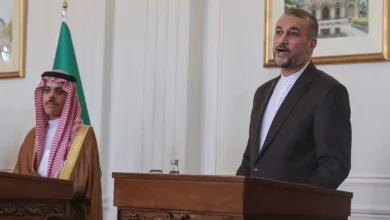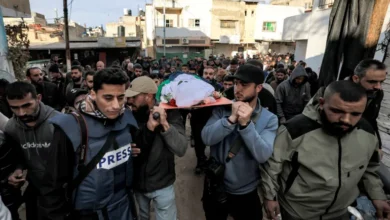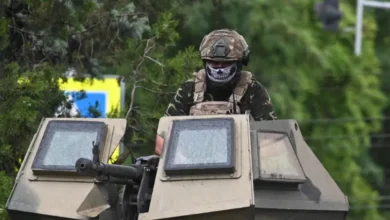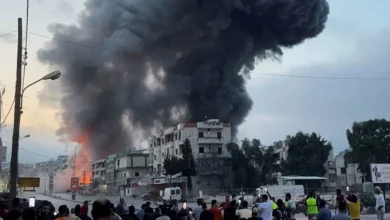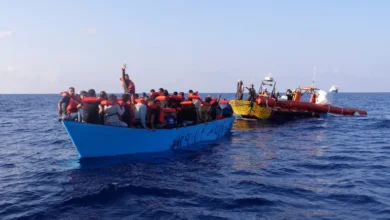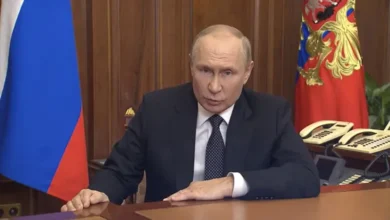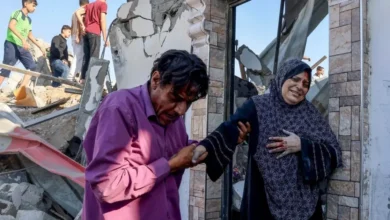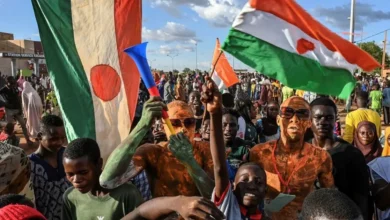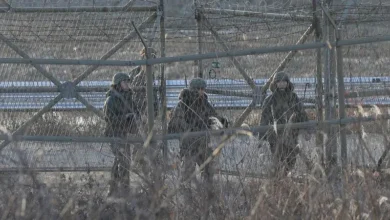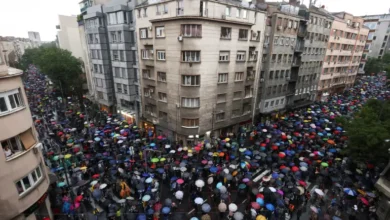Middle East tensions escalate: Can Israel and Hezbollah avoid full-scale war?
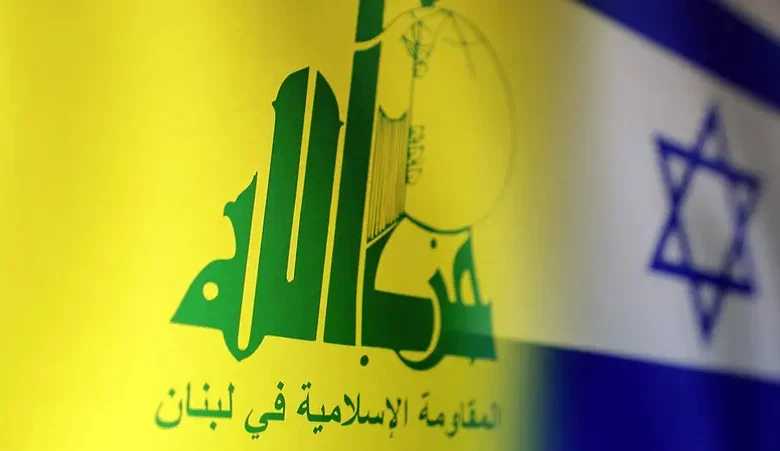
The Middle East stands on the precipice of a potentially devastating conflict as tensions between Israel and Hezbollah, the Iran-backed Lebanese movement, escalate.
Recent developments have heightened fears of a full-fledged war, with cross-border attacks intensifying and both parties preparing for possible large-scale military engagements.
Last Wednesday, Hezbollah chief Hassan Nasrallah issued stark threats, stating that nowhere in Israel would be safe in the event of war and that even Cyprus, an EU member state, along with other parts of the Mediterranean, would be in danger. This marked an escalation in the ongoing exchange of heated rhetoric from both sides.
The conflict has reached a point where many believe Israel may be compelled to address the threat from its northern front without further delay.
The Israeli military said last week it had approved a plan to push the militant group further from the border but expressed a preference for a diplomatic resolution. Nasrallah reiterated that Hezbollah did not seek war, though he warned that the current hostilities could escalate into a broader conflict.
Meanwhile, US officials have assured a delegation of top Israeli officials visiting Washington that the Biden administration would support Israel if a northern war were to erupt, CNN reported late Friday.
However, Air Force Gen. CQ Brown, chairman of the Joint Chief of Staff, has said the US is unlikely to be able to help Israel in the event of a broader war with Hezbollah, the Associated Press reported on Monday.
“It is harder to fend off the shorter-range rockets that Hezbollah fires routinely across the border into Israel,” Brown was quoted as saying.
Triggers for escalation
Hezbollah and Israel’s military have been trading fire almost daily since the start of the war in Gaza after the October 7 Hamas attack on Israeli settlements and military bases in southern Israel, which left an estimated 1,200 Israelis dead with another 250 taken hostage.
Israel retaliated by launching a military assault on Gaza that health authorities say has killed more than 37,400 people, mostly civilians, and left much of the population homeless and destitute.
Hezbollah has said its campaign aims to offer “support to the Palestinian people and the resistance in Gaza.” The group also mentioned that it would not stop its attacks unless a ceasefire is achieved in the strip.
Hezbollah’s attacks ratcheted up after Israel expanded its offensive into the southern Gaza city of Rafah in May and spiked further in June after an Israeli strike killed high-ranking Hezbollah commander Taleb Sami Abdullah. The group responded by launching hundreds of drones and rockets at Israel.

Israel has been equally striking back aggressively against Hezbollah, assassinating senior members and targeting locations deeper inside Lebanon.
Since the hostilities began along the Israel-Lebanon border on October 8, at least 480 people have been killed in Lebanon, mostly fighters but including at least 93 civilians, according to an AFP tally.
On the Israeli side, at least 15 soldiers and 11 civilians have been killed, according to Israeli authorities.
Tens of thousands of people on both sides of the Israel-Lebanon border have been uprooted and displaced.
This has intensified political pressure in Israel for tougher action.
“Within certain factions of the Israeli war cabinet, there is a palpable temptation to embark on a headlong rush to expand the conflict,” Karim Bitar, professor of international relations at Saint Joseph’s University in Beirut, told Al Arabiya English. “Prime Minister Benjamin Netanyahu is under immense pressure to restore calm to the north and bring back security, especially given that so many Israelis have been displaced from the area. To the Israeli government, the status quo is no longer acceptable.”
Hezbollah’s deterrence strategy and weapons
Hezbollah’s approach to its conflict with Israel is one of calculated aggression. The group aims to maintain a deterrent posture against Israel without provoking a full-scale war. This strategy is underscored by periodic attacks intended to demonstrate its capability and readiness for conflict while avoiding an outright war.
The group has been gradually unveiling its new arsenal. On June 8, Hezbollah escalated the conflict by launching Falaq 2 rockets at a military target in northern Israel. This marked the first use of this particular weapon, an enhanced version of the Falaq 1 rocket that Hezbollah has previously utilized. The Iranian-made Falaq 2 boasts a longer range and a larger warhead compared to its predecessor.
It has also proven itself adept at downing Israeli drones and has a large fleet of drones, one of which has recently conducted a lengthy flight over the port city of Haifa undisturbed. The nine-minute video taken by the surveillance drone showed maximum-security Israeli locations such as military bases, weapons depots, missiles, maritime ports and airports in Haifa.
Nasrallah said that was part of Hezbollah’s “psychological warfare” against its foe.

Shortly after the video surfaced, the Israeli Foreign Minister Israel Katz stated that his country was nearing a critical juncture where it would consider altering its approach toward Hezbollah and Lebanon. He warned that in a full-scale conflict, “Hezbollah will be destroyed and Lebanon will be severely hit.”
Hanin Ghaddar, the Friedman Senior Fellow at the Washington Institute for Near East Policy, said that Hezbollah’s goal was to “establish deterrence” following the release of another threatening video by the group, which showcased vital Israeli targets.
“Rhetorical escalation is increasing, but based on the group’s patterns of rhetoric, Nasrallah is threatening war to prevent one,” she wrote on X on June 23.
Firas Maksad, an adjunct professor at the George Washington University and a senior fellow at the Middle East Institute, suggests Hezbollah’s capacity to deter Israel is constrained.
“The group’s primary focus lies in manipulating the military balance of power to its advantage. However, it appears to overlook the intricate political landscape within Israel. Even voices traditionally critical of Netanyahu now advocate for a more robust stance against Hezbollah,” Maksad told Al Arabiya English. “These evolving domestic political dynamics in Israel could prove pivotal in shaping whether Israel chooses to escalate into an offensive against Hezbollah in Lebanon. This contrasts sharply with Hezbollah’s singular emphasis on altering the military calculus, highlighting a potential mismatch between its strategic goals and the broader political realities influencing Israel’s decision-making process.”
Diplomacy amid rising concerns
While Hezbollah focuses on maintaining deterrence through proportional attacks, Israel weighs the costs of invading Lebanon based on past experiences and the implications of opening a second war front beyond Gaza.
It is believed that neither Israel nor Hezbollah want to initiate a war. Such a conflict, involving two heavily armed adversaries, could lead to widespread devastation. In addition, it could potentially draw in Hezbollah’s supporter, Iran, and the US, Israel’s primary ally.

The last all-out war between the two was in 2006 when Hezbollah’s fighters crossed the Israel-Lebanon border, captured two Israeli soldiers and killed three others.
This led to a month-long conflict marked by intense fighting and widespread destruction, resulting in the deaths of around 1,200 people in Lebanon, mostly civilians, and 157 Israelis, mostly soldiers. Israel launched a massive military campaign to weaken Hezbollah’s military capabilities, while the Lebanese group fired thousands of rockets into northern Israel.
Since then, Hezbollah’s military strength has expanded notably, with estimates from the United States and Israel suggesting the group possesses upwards of 150,000 missiles and rockets. It has also gained battlefield experience in Syria, where it supported Bashar al-Assad’s regime alongside Iran’s Islamic Revolutionary Guard Corps during the Syrian civil war.
Nasrallah said in 2021 that Hezbollah has 100,000 fighters. The CIA World Factbook says it was estimated in 2022 to have up to 45,000 fighters, split between roughly 20,000 full-time and 25,000 reserve personnel.
The US is actively engaged in diplomatic efforts to avert an escalation, with President Joe Biden’s senior adviser Amos Hochstein recently meeting with officials in Lebanon and Israel. Hochstein emphasized the seriousness of the situation, stressing the urgent need for a diplomatic resolution to avoid a broader conflict.
Analysts see that Washington’s failure to enforce a ceasefire in Gaza, combined with Iran and Hezbollah’s resolve to impose costs on Israel through their activities in Lebanon, could obstruct prospects for a resolution through diplomatic avenues.
“A diplomatic resolution remains a possibility, albeit a narrow one,” Maksad pointed out. “To achieve this, Hezbollah would need to consider withdrawing its elite fighters and anti-tank units from the border regions. While this step wouldn’t guarantee success, it could pave the way for diplomatic progress. However, it’s uncertain whether Hezbollah would agree to such terms, nor whether Israel would find them sufficient.”
